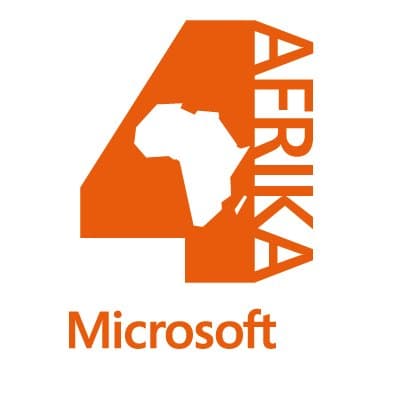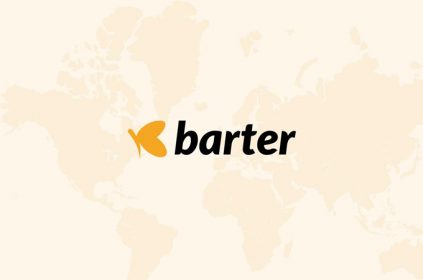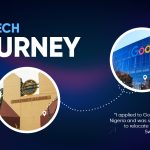Chief Technology Officer, Microsoft 4Afrika, Ryno Rijnsburger, has said that African governments must digitise to be innovative, inclusive and resilient.
He made this known during a thought leadership discussion.
According to him, the Covid-19 pandemic offers Africa the chance to leapfrog development through digitisation, and potentially position itself as a global digital powerhouse.
He said: “While the private sector has an important role to play in this development, governments across Africa have a critical role to play in enabling digitisation, through infrastructure development, but also in digitising their own systems and processes and by creating an enabling environment using regulatory and legal tools.”
Ryno believes that developments such as the African Continental Free Trade Agreement (AfCFTA) reinforce the urgent need for governments to digitise to enable not just trade, but positive economic growth across the continent.
The benefits of the digital economy are significant
Digital technologies offer a chance to accelerate the pace of economic and social advancement, unlocking new pathways for rapid economic growth, innovation, job creation and access to services.
ALSO READ: INTERVIEW: Africa Is A Gold Mine For Ride-Hailing Business – CEO, TOUR Drive NG
However, too many people in Africa lack access to the internet, and too few citizens have digital IDs or access to financial services, which in turn denies them access to critical services.
The World Bank’s Digital Economy for Africa Initiative notes that few governments are investing strategically and systematically in developing digital infrastructure, services, skills and entrepreneurship.
“Governments need to find more nimble and effective means of delivering services and interacting with citizens,” the initiative comments.
To unlock digital transformation, the public sector must be brought into the digital age, accelerating the rollout of digital IDs, signatures and registries, as well as implementing digital-friendly policies.
Here, private-public partnerships could play a significant role in helping to develop the necessary platforms to enable citizens to access digital IDs and services offered by government.
In Morocco, Microsoft’s partnership with Algo Consulting has developed Wraqi, an online administration solution using machine learning, IoT and blockchain to improve citizen-government relations.
Powered by the Microsoft cloud, Wraqi allows users to create an account with a signature repository, which government entities can use to identify, authenticate and authorise citizens.

Ryno Ryinsburger
Digital skills must be developed
The digital skilling conversation is a well-trodden narrative, but one that is salient to this discussion – government employees must be upskilled with the right digital skills to enable digitisation within governments and of government services.
Beyond that, governments must seek to upskill citizens to enable them to participate in the digital economy, as this will enable sustainable and inclusive economic development.
In South Africa Microsoft 4Afrika is working with the Gauteng Provincial Government to establish a Gauteng Centre of Excellence to drive digital innovation and accelerate skills development and capacity building, both for provincial government employees, and also to train more than 3,000 township-based software developers, enabling citizens with digital skills that will boost their ability to contribute to the economy and become tax-paying citizens.
The project aims to provide Gauteng government employees with modern technology tools that result in higher engagement and productivity, and also aims to ensure significant participation and meaningful inclusion of residents from traditionally underserved areas into the mainstream economy, by creating a platform for digital enablement for communities throughout the province.
The goal is to enhance and accelerate the digital transformation of the Gauteng Provincial Government by enabling digital transformation and creating a vibrant ecosystem.
Upskilling staff is critical to ensure the success of digitisation initiatives in government.
Policy plays a vital role in creating an enabling environment
Digital technologies are essential to addressing socio-economic challenges, and digitisation needs to be scaled up by policymakers to unlock structural transformation that will help mitigate some of the worst effects of the Covid-19 pandemic.
Government is the strategic enabler in all African countries, and Microsoft’s vision is to enable remote access, enable cross-agency collaboration and deliver trusted and secure services, driving sustainability and transformation.
ALSO READ: Fintech Startup: Okra Raises $3.5 Million, Plans To Deepen Operation In Nigeria
A report by McKinsey estimated that Africa’s public services could achieve annual technology-related productivity gains of between $10 billion and $25 billion per year by 2025 through measures such as digitising the management of public records and using enterprise resource planning.
The end-to-end digitisation of revenue collection, including taxes and fines, would strengthen African governments’ revenue collection substantially.
Although these predictions have indisputably been affected by the Covid-19 pandemic, the potential to strengthen revenue collection remains.
There are challenges but also opportunities
Cristina Duarte, Special Advisor to the UN Secretary-General, via a comment in an article published by the IMF said that “the massive adoption of digital technologies also means that policymakers must be aware of and address the complex legal and ethical impact of technology in society, including privacy, data, and tax evasion.”
However, if African governments can embrace digitisation with agility and speed, the benefits could prove to be a game-changer for the continent and its citizens, promoting sustainable and inclusive economic development.
About Ryno Ryinsburger
As Chief Technology Officer at Microsoft 4 Afrika, Ryno Rijnsburger is a passionate technologist and leads the technology division of Microsoft’s 4Afrika initiative.
In his role, he helps to guide investment and seek growth in companies and individuals across Africa.
Ryno’s aim is to promote the creation of high tech organisations that leverage Microsoft’s Intelligent Cloud and the power of modern IT-related technologies in the region and to establish the next generation of skills to run them.
Experienced in consulting and delivering on IT systems across the Middle East and Africa for over 20 years,
Ryno has had exposure to hundreds of organizations spanning from startups to international blue-chip corporates.
He has a keen understanding of the opportunities and challenges that the African financial market presents, having spent a considerable part of his career working with banks, governments, startups and Microsoft partners on the continent.
Found this interesting? Share!

























 and then
and then